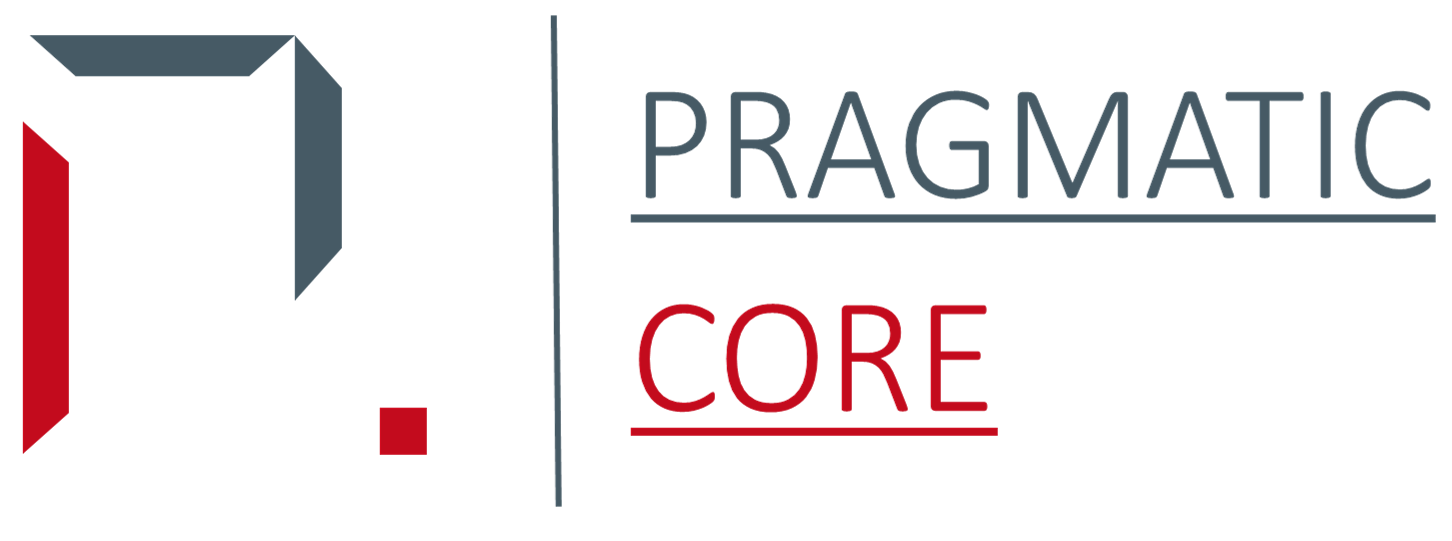Key Points:
- Outsourcing cuts pay, recruitment, training, administrative overhead, real estate, and equipment costs. Helping you internally generate capital for digital transformation, R&D, and market expansion increases profitability and revenue growth.
- Global talent, specialized skills, and scalability for rapid modifications make outsourcing efficient. Offloading non-core duties frees up the CEO’s time for innovation and growth.
- By using a distributed talent pool, outsourcing provides market agility, access to specialized global expertise, and risk reduction. Its flexible pay-per-use strategy and top-tier specialists reduce human risks and ensure business continuity.
In today’s volatile, uncertain, complex, and ambiguous global economic climate, businesses face a multitude of challenges. These range from inflation and fractured supply chains to talent shortages and rapidly shifting consumer preferences. To remain competitive and resilient, companies need strategies that can adapt to these disruptive forces. Outsourcing key business functions has emerged as a powerful strategic tool for achieving nimbleness, productivity, cost-efficiency, and focus in such turbulent times. Many leading companies have already adopted outsourcing to gain specialized expertise, access global talent pools, optimize resource allocation, reduce costs, and respond swiftly to change.
This article will provide a comprehensive examination of the multifaceted benefits that outsourcing offers in strengthening organizational capabilities amid economic uncertainty. We will delve into critical factors that directly impact competitiveness and growth, such as cost optimization, access to niche skills, enhanced efficiency, risk mitigation, and ensuring business continuity while remaining responsive to evolving market dynamics. An effective outsourcing strategy can yield a multiplier effect on both operational and financial performance, driving innovation and solidifying market leadership. The array of benefits discussed in this article presents a compelling rationale for business leaders to evaluate whether outsourcing can similarly elevate their specific organizational goals and growth aspirations.
Cost Savings
Outsourcing is a powerful tool for achieving significant cost savings and optimizing capital allocation compared to maintaining large in-house teams for non-core functions. Organizations can reduce their expenses by 30-50% by minimizing expenditures on salaries, recruitment, training, HR administration, real estate, equipment, and other overheads associated with permanent employees.
Our analysis of more than 5,000 client engagements reveals average cost savings of $32,250 per outsourced full-time equivalent (FTE) role. Transitioning to an outsourced talent model substantially reduces hiring expenses, as well as ongoing infrastructure, administrative, and managerial costs.
For example, a Fortune 500 retailer witnessed a 42% reduction in HR operations costs within a year of outsourcing recruitment, payroll, and benefits administration. This freed up essential capital for investments in digitizing stores to enhance the customer experience.
Outsourcing eliminates the need for upfront hiring expenses while also alleviating the burden of administrative overheads related to corporate real estate, equipment, and HR paperwork, which often distracts in-house teams. It provides access to qualified global talent in a cost-effective manner that lowers the overall wage bill.
By eliminating such non-core expenses, outsourcing liberates capital for business-critical initiatives, such as research and development, market expansion, digital transformation, brand building, and sales enablement. Multiple studies suggest that the indirect return on investment from strategically reallocating these savings can reach 15-25% in terms of profitability, revenue growth, and market share gains.
Furthermore, outsourcing ensures that costs can dynamically adjust to align with business needs. Scalability enables easy resizing of service capacity, unlike the constraints of hiring and layoffs associated with in-house staff.
Increased Efficiency
Outsourcing offers inherent efficiency advantages over in-house teams, including 24/7 operations, access to global talent across time zones, specialized skills, cross-training, parallel processing, and optimal staff allocation. These factors contribute to higher throughput and quicker turnaround times.
Additionally, outsourced teams can seamlessly scale up or down to align with evolving business priorities. In contrast, in-house staffing lacks agility for rapid capacity adjustments due to organizational inertia and cost considerations. The flexible, cloud-based on-demand model offers efficient access to the necessary skills when they are needed.
Outsourcing also streamlines middle management oversight of repetitive tasks, allowing for a sharper focus on strategic decision-making. For instance, a logistics company outsourced on-ground operations management across 150+ warehouse locations, allowing its headquarters to concentrate on optimizing supply chain infrastructure and inventory allocation.
Embracing outsourcing can help organizations achieve significant efficiency gains, leading to faster project delivery, enhanced productivity, and better resource utilization.
Focus on Core Business
One of the most significant advantages of outsourcing is that it allows organizations to focus on their core business activities by offloading non-core functions. These non-core functions may include logistics, technical support, sales, and HR workflows. By outsourcing these tasks, businesses can free up strategic and management bandwidth at the leadership level, enabling them to channel their attention toward building competitive differentiation.
Our research suggests that reallocating non-core functions to outsourcing can result in around 25% more executive time being available for core innovation, marketing, and product development. Consequently, companies often experience superior gains in market share, customer acquisition, and revenue growth by sharpening their focus on what they excel at.
For instance, a biotech firm that outsourced clinical trial data management and reporting was able to allocate over 30% more senior scientist time to core drug research and development. This led to a faster time-to-market for a new oncology therapy.
Agility and Adaptability
The on-demand structure of outsourcing provides businesses with the agility to rapidly respond to market transitions, competitive threats, and new opportunities. Leaders can swiftly scale team sizes, switch locations, and onboard new capabilities as strategic needs evolve.
In contrast, in-house staffing models often carry legacy organizational inertia, where change frequently encounters internal resistance and cost-related hurdles. Outsourcing offers the flexibility to experiment with new concepts, recalibrate offerings, and capitalize on market shifts.
For example, an e-commerce retailer leveraged outsourced web development teams to quickly launch personalized recommendation engines during the pandemic-led surge in online shopping. Such agility to capitalize on the boom would have been unfeasible using only in-house resources.
Across various sectors, we have witnessed outsourcing enable quicker adaptation compared to purely in-house staffing models, which are constrained by change inertia and binary hire/fire options.
The variable capacity and specialized expertise provided by outsourcing offer companies a sandbox to test innovative ideas and seize transient opportunities in dynamic markets.
Access to Talent
Outsourcing provides organizations with access to global talent ecosystems that possess specialized expertise in emerging technologies like AI, ML, and blockchain, as well as industry-specific capabilities. Businesses can selectively utilize seasoned professionals as extended teams without incurring prohibitive hiring and onboarding costs.
Studies have shown that outsourced teams often exhibit competency levels up to 45% higher compared to junior profiles typically available for in-house roles. Profound capabilities in software engineering, data science, digital marketing, and other high-value skills position organizations for operational excellence and technological leadership.
The location-agnostic nature of outsourcing ensures English fluency and seamless cross-border collaboration, allowing global companies to benefit from talent worldwide.
Risk Mitigation
Over-reliance on small, concentrated in-house teams carries risks, including a lack of continuity due to attrition, redundant skill gaps, mis-hiring errors, and loss of institutional knowledge.
The distributed, collaborative nature of on-demand outsourced talent helps mitigate such people-related risks.
Studies reveal that failure rates are 35% lower with outsourced hires compared to in-house hires. Outsourcing also provides a buffer against variability in talent demand, exodus risks during downturns, and business disruptions through access to a wider expertise ecosystem.
For instance, a European investment bank effectively addressed the attrition of 20% of their in-house equity research team during the Great Resignation by leveraging outsourced analysts to fill the skill gap. Such readily available talent played a critical role in ensuring business continuity.
Additionally, the flexible capacity and pay-per-use model of outsourcing does not tie up capital in fixed employee costs during variations in workflow volumes.
Customized Services
Outsourcing allows organizations to tailor solutions, including team structures, engagement models, and delivery processes, to meet their specific needs. This flexibility contrasts with the one-size-fits-all approach of in-house shared services.
Dedicated outsourced teams for individual clients foster better alignment, accountability, and performance orientation compared to fragmented focus when serving competing priorities in a centralized in-house group. Custom outsourcing also enhances the protection of clients’ IP and data confidentiality.
Outsourcing offers the flexibility to create customized operating models encompassing team structure, work protocols, infrastructure, governance, and communications to address the unique requirements of individual client organizations.
Recession Proofing
Economic contractions strain corporate budgets as revenues decline amidst uncertainty. Maintaining in-house staff costs through such periods often necessitates layoffs and cutbacks that hurt long-term competitiveness.
In contrast, outsourcing provides a variable cost structure that can flex down operating expenses in alignment with revenue fluctuations. Organizations pay only for actual work consumed rather than carrying fixed costs of salaries, real estate, and equipment for idle capacity.
For example, during the 2008 recession, a US retailer optimized costs by reducing outsourced customer service teams in line with transaction volume declines, rather than resorting to mass layoffs. Such variable capacity and avoidance of tied-up capital impart recession resilience.
Outsourcing eliminates the need for upfront capital investment in building in-house teams and the accompanying fixed costs of salaries and benefits, as well as office space, regardless of actual work volumes. The pay-per-use model aligns provider fees with the business needs of the client.
As detailed across multiple dimensions, outsourcing can deliver a multiplier effect on organizational performance, competitiveness, and responsiveness to evolving market conditions. It provides access to critical skills, cost optimization, inherent agility, and risk management capabilities required to successfully navigate the turbulent business environment.
For leadership teams seeking to drive efficiency, productivity, and singular strategic focus—essential ingredients for gaining a performance edge in times of uncertainty—evaluating the suitability of outsourcing for non-core functions is imperative.
We trust that this article has provided tangible insights into the collective benefits of outsourcing. The case for assessing its applicability to meet specific organizational objectives and future readiness has never been stronger. In an ever-evolving business landscape, embracing outsourcing can empower organizations to thrive amidst disruption, innovate with confidence, and strengthen their position in the market.


